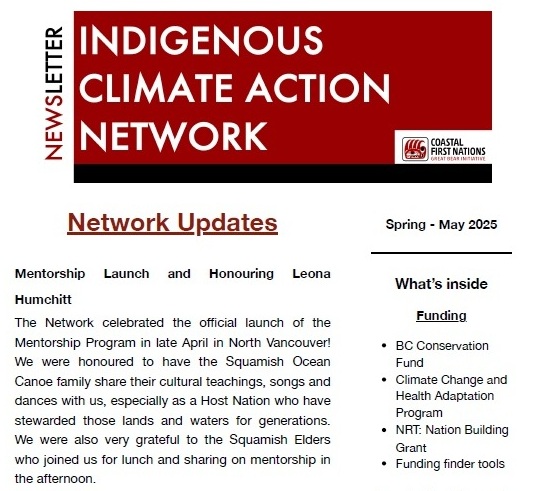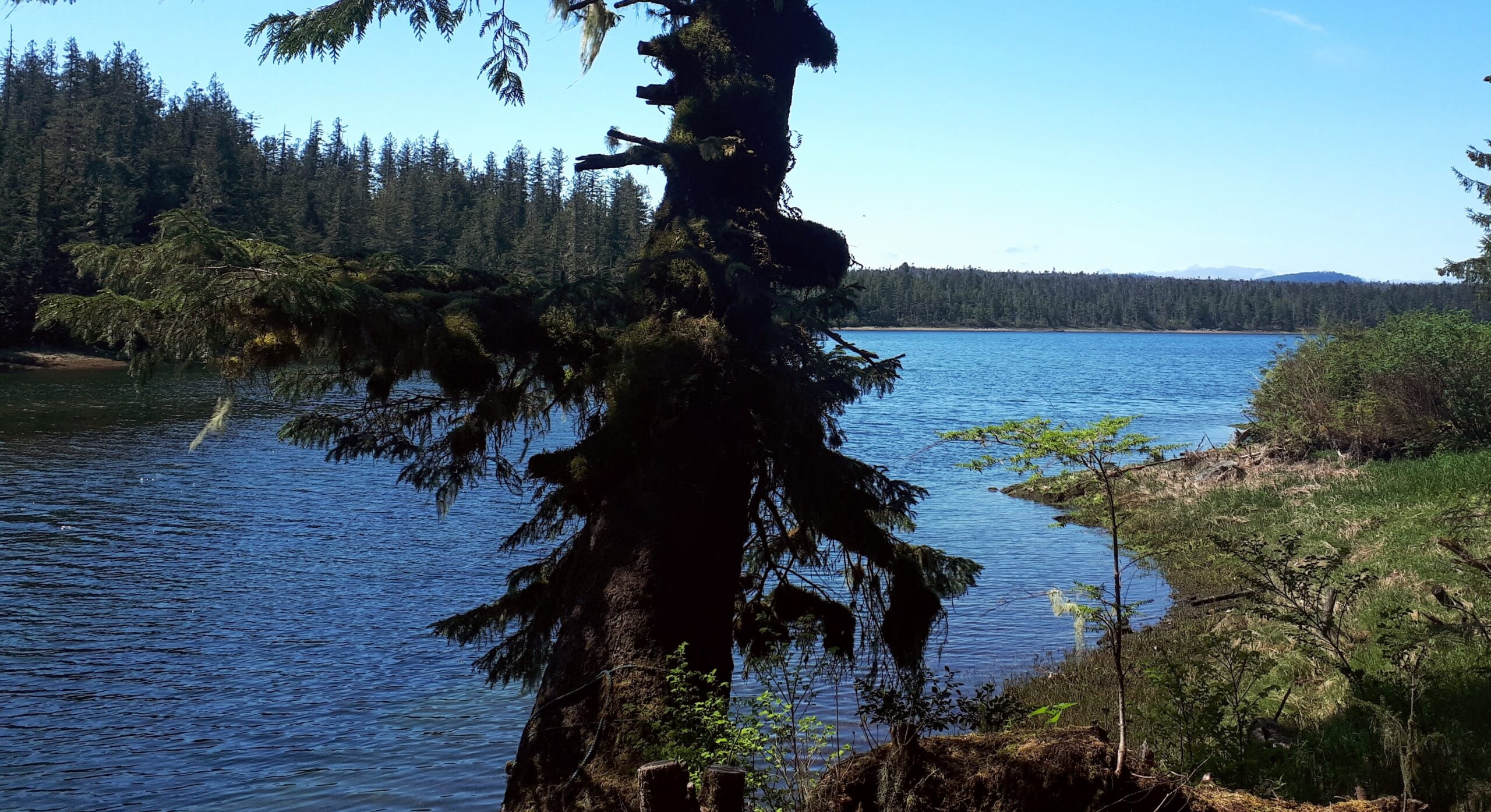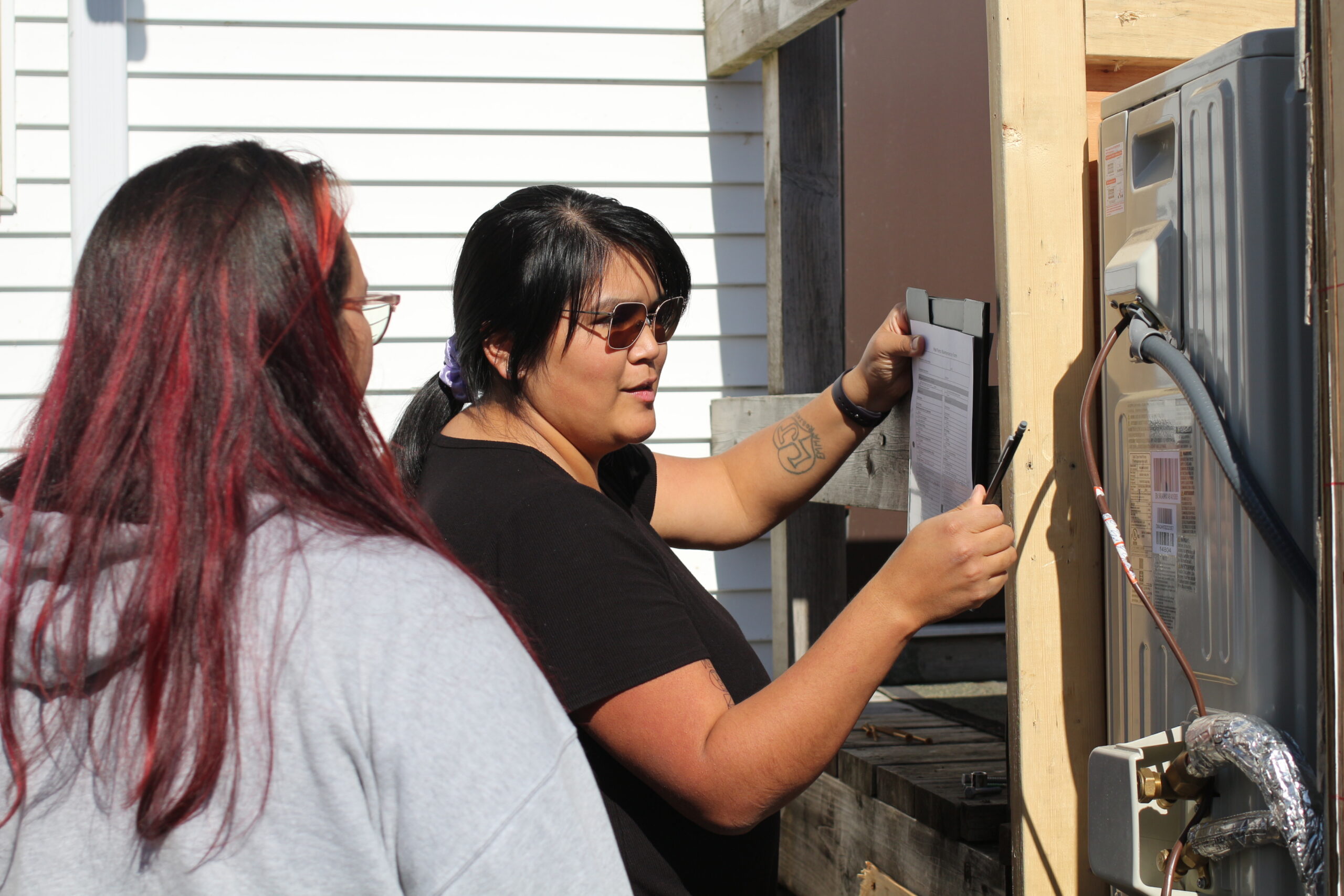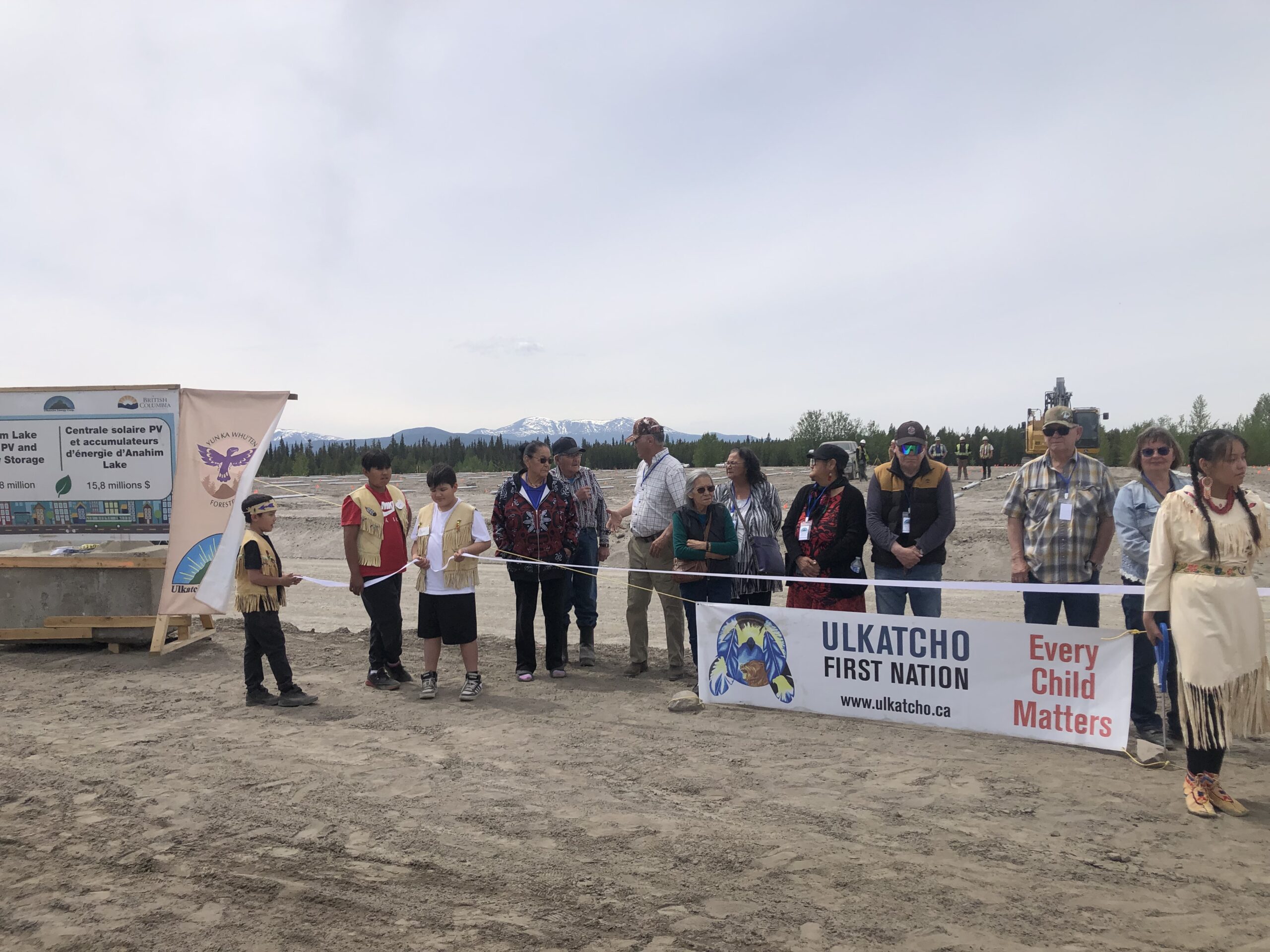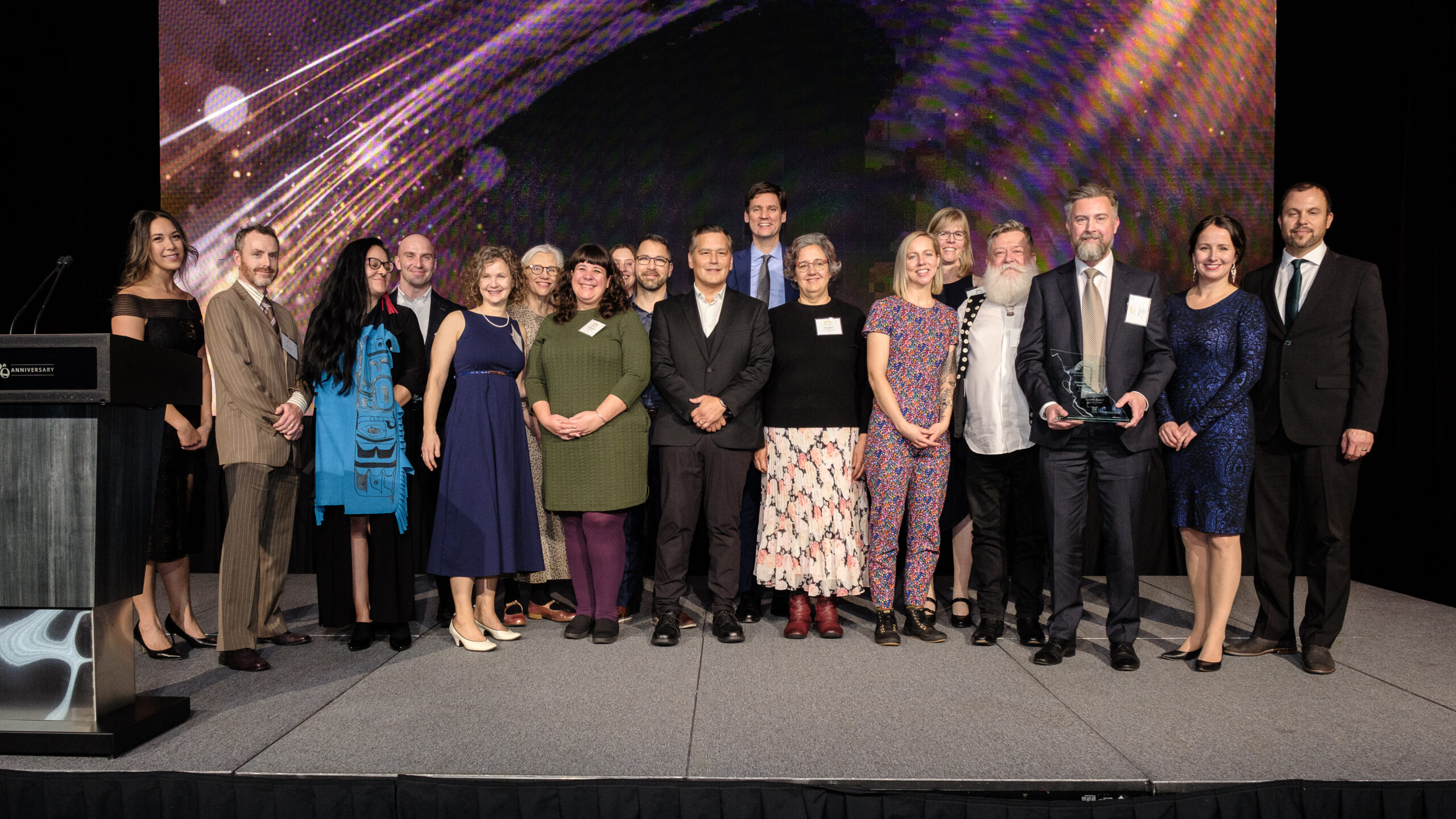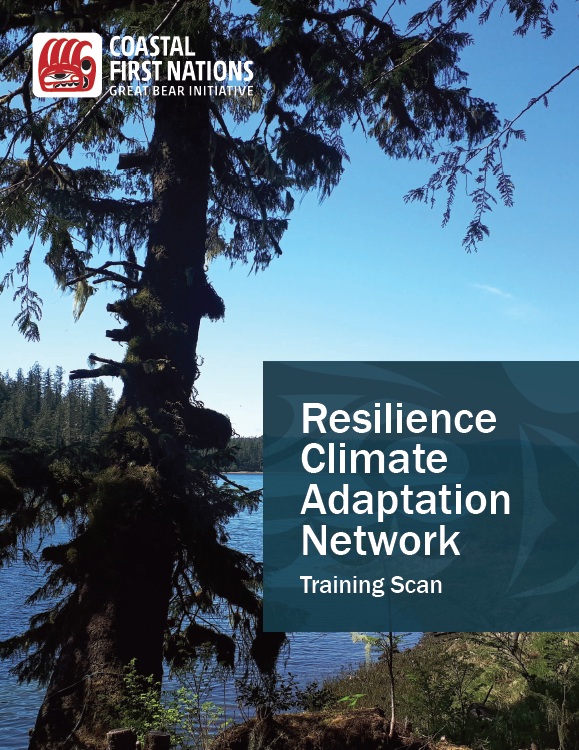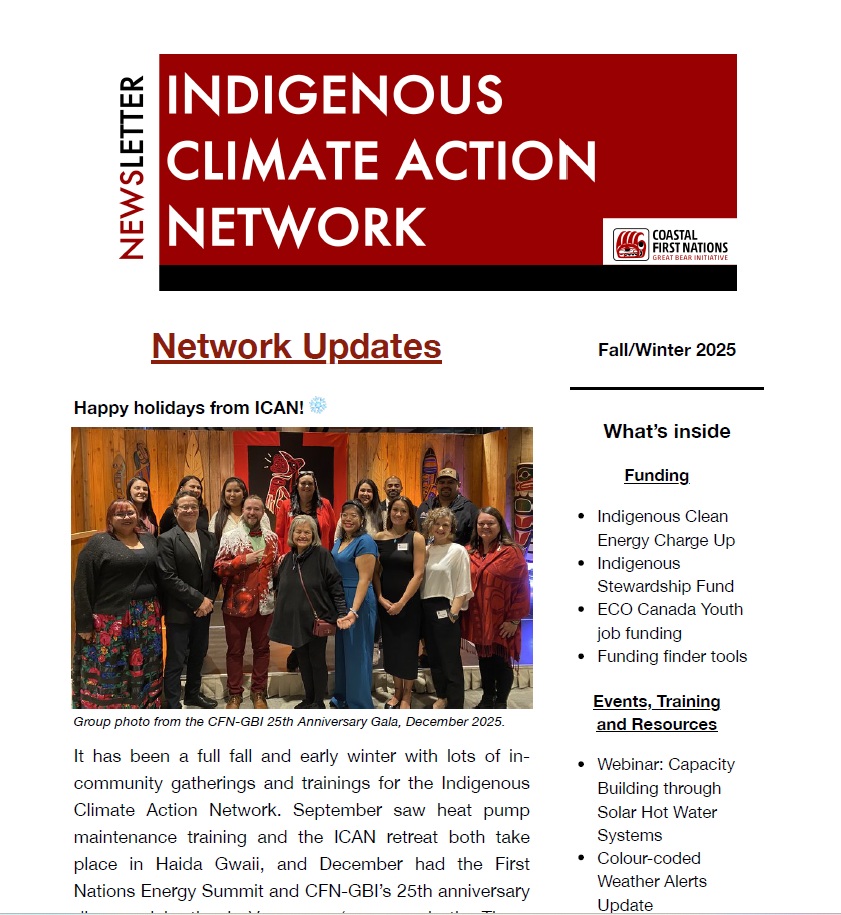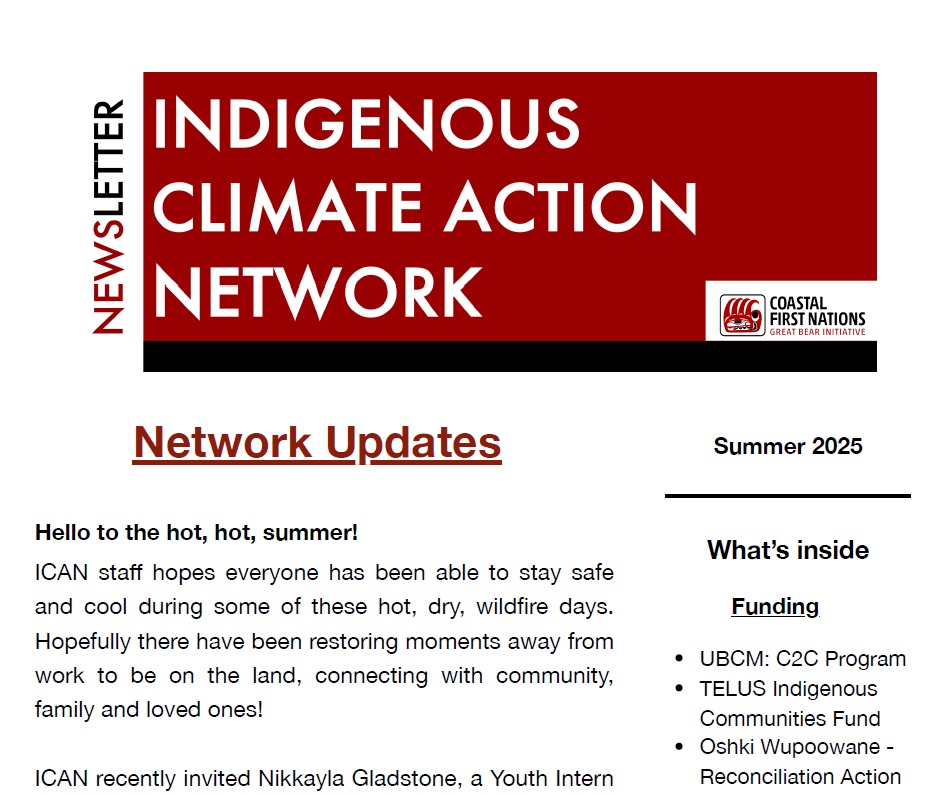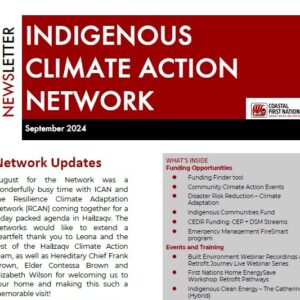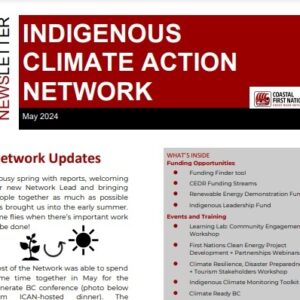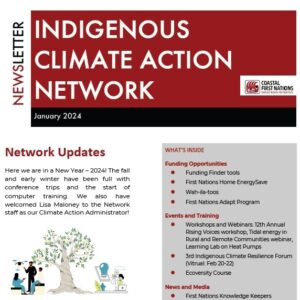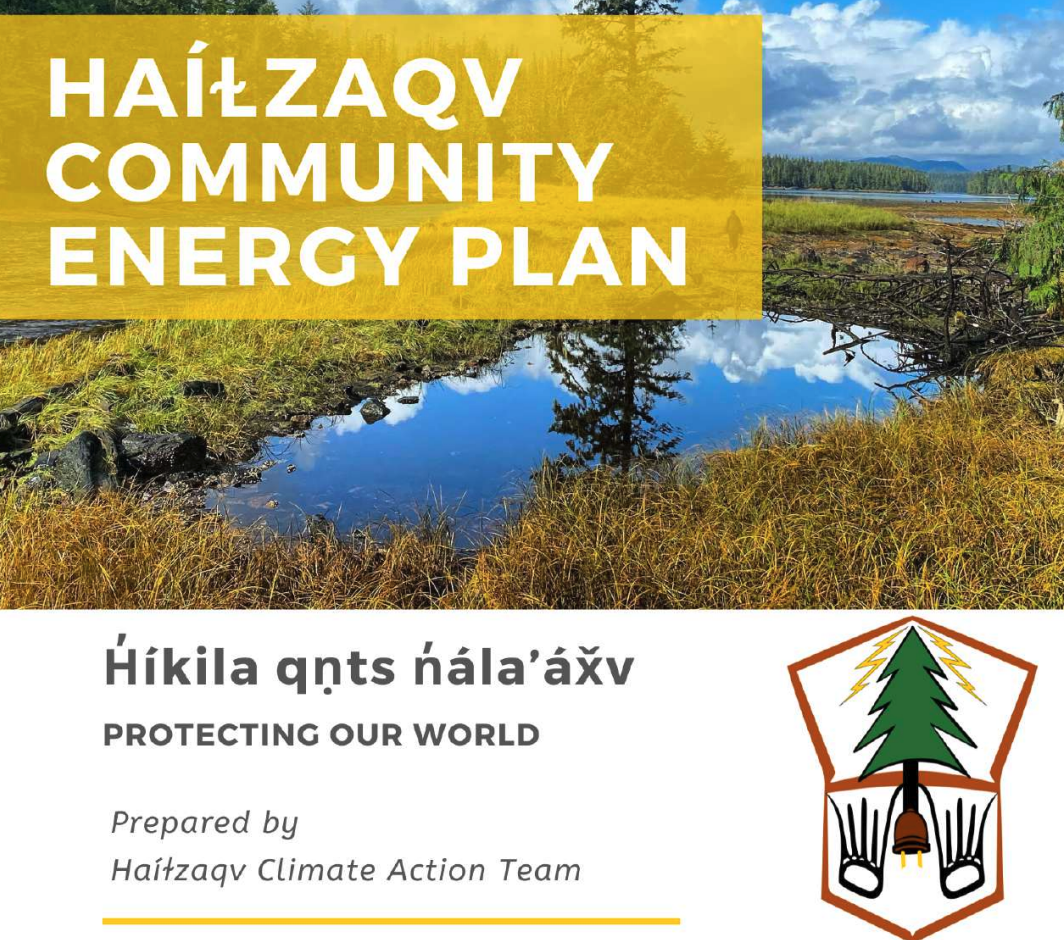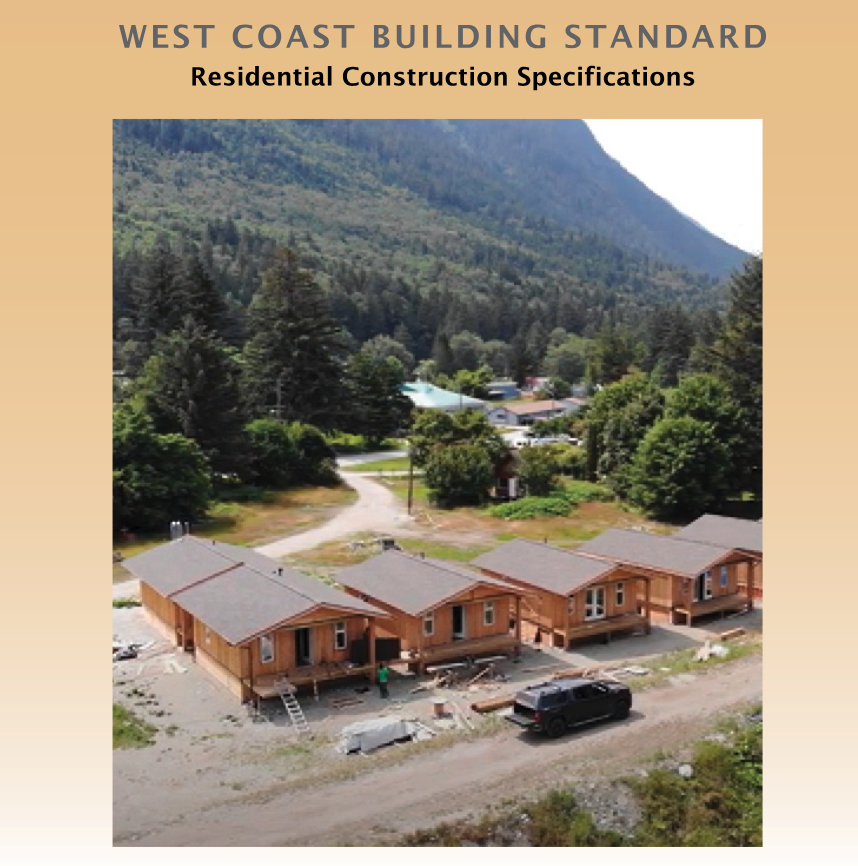Resilience Climate Action Network
Overview
As climate change progresses, its impacts are disproportionately felt by First Nations communities and Indigenous peoples across BC. First Nations in BC have cultivated a deep connection to their lands since time immemorial demonstrating sustainable stewardship and unique land-based knowledge. This history has positioned First Nations as leaders in climate action and sustainability, with rights to be respected and uplifted in support of climate resilience. At the same time, the impacts of colonialism create conditions where communities require additional support to enhance their capacity for local climate resilience.
The Resilience Climate Action Network (RCAN) is a province-wide network co-led by Coastal First Nations (CFN-GBI) and the First Nations Emergency Services Society (FNESS), that supports First Nations capacity to protect their communities, territories, culture, health, and wellbeing from the impacts of climate change. The program demonstrates an effective model for strengthening climate resilience in First Nations communities across BC through Indigenous-led action.
Three streams of action guide the program towards achieving its aims, with one organization providing leadership in each stream:
-
Stream 1: Hire and support the capacity development of regional climate resilience coordinators (RCRCs) to support First Nations communities across BC.
- FNESS leads
-
Stream 2: Develop and deliver education, training, and resources to strengthen First Nations climate resilience.
- CFN-GBI leads
-
Stream 3: Establish a province-wide resilience network that facilitates peer-to-peer learning, collaboration, and partnerships among First Nations communities, building off existing province-wide initiatives.
- CFN-GBI leads
Resources
Through RCAN Stream 2, CFN develops a range of trainings, tools, and resources available to all First Nations communities. Check back regularly, as we will post new resources here.
-
Training Scan
- A scan of educational resources, toolkits, and training programs available to First Nations communities and coordinators to support their climate resilience knowledge and capacity development.
-
Network Map
- Coming soon! The Network Map is a tool for First Nations communities and coordinators to identify and connect with potential partners, organizations, and communities working on similar climate resilience priorities or projects.
History and Partnership
In 2022, the Government of British Columbia published the Climate Preparedness and Adaptation Strategy (CPAS) which outlined actions to address the impacts of climate change and build resilience across the province. This strategy emphasized a need to advance Indigenous-led climate adaptation. Through engagement with First Nations communities and the Indigenous Climate Action Working Group (ICAWG), the need to fund capacity-building initiatives in First Nations communities was identified. Addressing this gap the Climate Action Secretariat (CAS) put out a call for a $2.25M pilot project to build capacity in First Nations communities and organizations for climate resilience planning and project implementation. The Indigenous Climate Resilience Capacity Pilot program (later named the Resilience Climate Action Network) was awarded to CFN-GBI and FNESS, two Indigenous-led organizations with complementary expertise in leading province-wide initiatives.
Acknowledgements
The Resilience Climate Action Network acknowledges the many diverse First Nations peoples across B.C., each with deep and profound relationships with their territories. Relationship building and respect for First Nations leadership and Indigenous peoples is foundational to our success.
We gratefully acknowledge the financial support of the Province of British Columbia through the Climate Action Secretariat, a division of the Ministry of Energy and Climate Change Solutions. CAS provides cross-government leadership through a coordinated approach to developing and implementing actions to reduce GHGs, prepare for the impacts of climate change and grow a sustainable economy.
Coastal First Nations also acknowledges and gives thanks to all members of the Indigenous Climate Action Working Group, that provides technical advice and collaborates with CAS on a broad range of matters related to preparing for and adapting to climate change. This program was born from recommendations made from Indigenous leaders who share knowledge with the province through this table.
Explore more stories:
Resources
CFN produces a wide range of reports, fact sheets and other publications. Check back regularly, as we will post new resources here.
ICAN Newsletter – Fall/Winter 2025
DownloadICAN Newsletter – Summer 2025
Download